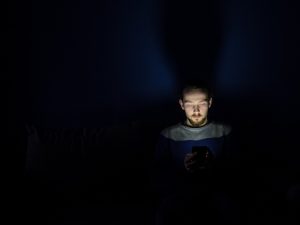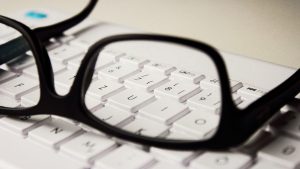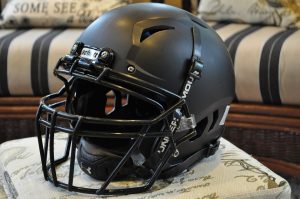Over the past decade, the world has witnessed numerous electronic devices coming to market. Billions of cell phones, laptops and tablets have been produced and all of these devices have become fixtures in people’s lives. With this rise in the usage of these devices, concerns also arose regarding the detrimental effects these devices. One of the problems brought up when discussing the problems with these devices is about their blue light emission.
Blue light is found in the visible spectrum of light between 400-450nm and has higher energy than other visible light, such as yellow light. Blue light emission today mainly comes from light emitting diodes or LEDs. The devices mentioned above all use LED screens that emit blue light. This exposure to blue light has been rumoured to cause a variety of health issues such as sleeping problems. More worryingly, however, blue light may shorten your lifespan.

Free photo of man looking at a cell phone screen in darkness from Needpix
In a study published last month, researchers showed that fruit flies that were exposed to blue light had a shorter lifespan than those who saw no blue light. The researchers divided the fruit flies into three groups: flies exposed to blue light for 12 hours, flies exposed to light with blue light filtered out for 12 hours and flies kept in complete darkness. They found that the flies exposed to blue light had reduced climbing ability compared to flies kept in the dark or those exposed to non-blue light. Additionally, these flies had higher brain neurodegeneration, which is the death of neurons. Furthermore, the flies exposed to blue light had significantly shorter lifespans compared to the other groups of flies. In this context, significance implies that these flies died sooner due to the blue light exposure rather than by chance or due to individual differences.
Another interesting result of this study was the inclusion of mutant flies without eyes in the study. These mutants also experienced brain damage, impaired movement and shorter lifespans when exposed to blue light compared to those not exposed to blue light. This suggests that blue light causes these effects by some mechanism other than retinal degradation. That mechanism, however, is unclear and more research is needed to determine how blue light causes these results.
In light of these results, it’s important to consider how to reduce blue light exposure. One way to reduce exposure would be to wear glasses that block blue light. These glasses have special lenses that filters out blue light and prevents it from hitting your eyes. Another way would be to turn to software. For example, twilight is an app you can download on your phone that automatically starts filtering out blue light after sunset to prevent interference with sleep. Similarly, PC and Mac users can also filter blue light by using the “Night Light” and “Night Shift” features found on their respective devices.

Free photo of glasses resting on a keyboard from Pixabay
Written by Kuljit Grewal


